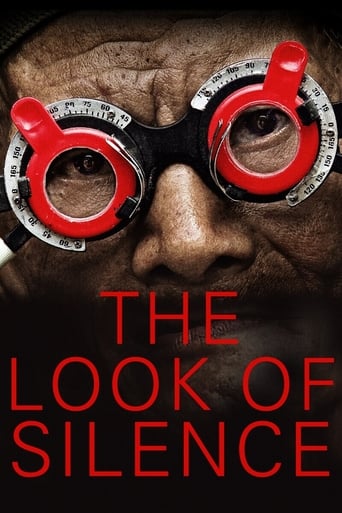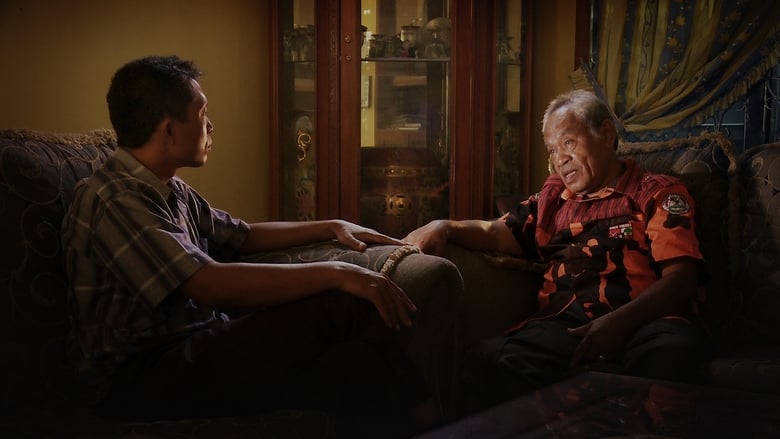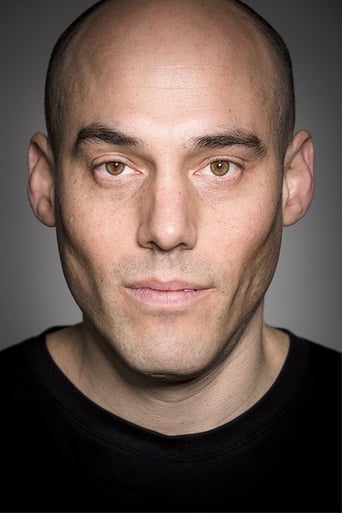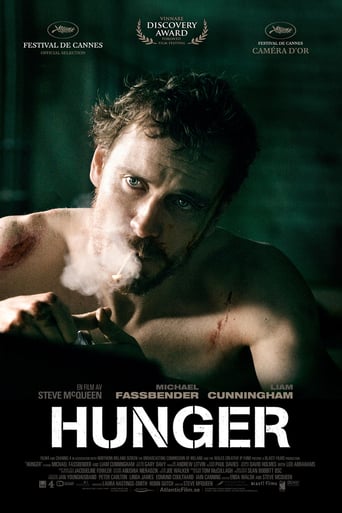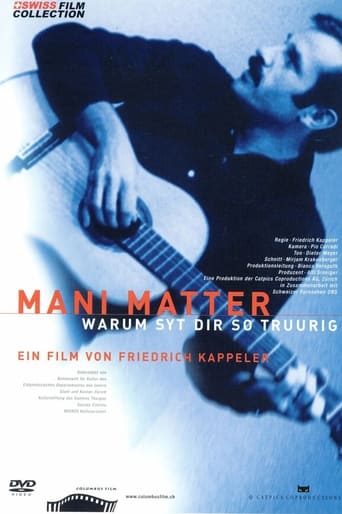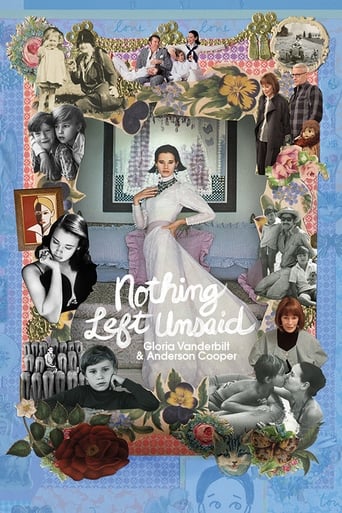The Look of Silence (2015)
An optician grapples with the Indonesian mass killings of 1965-1966, during which his older brother was exterminated.
Watch Trailer
Cast
Similar titles
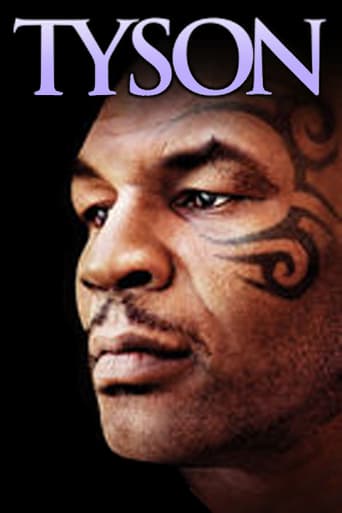
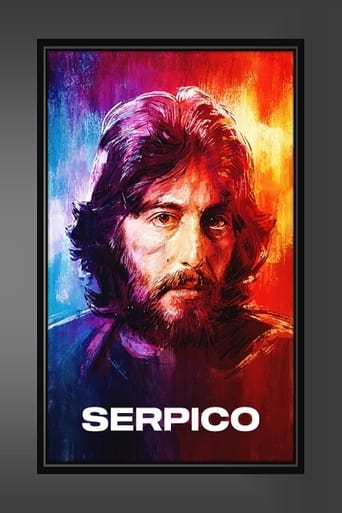
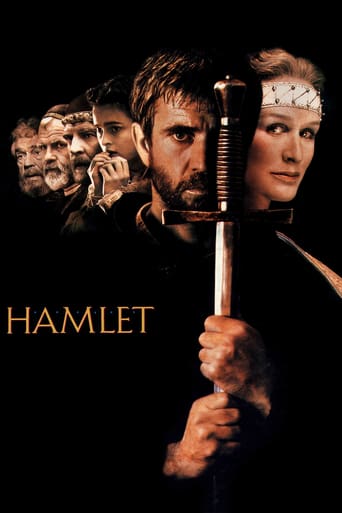
Reviews
To me, this movie is perfection.
People are voting emotionally.
It is not deep, but it is fun to watch. It does have a bit more of an edge to it than other similar films.
Fanciful, disturbing, and wildly original, it announces the arrival of a fresh, bold voice in American cinema.
Directed by Joshua Oppenheimer, this Indonesian film is seen as almost a sequel, more a companion piece, to his previous Oscar winning documentary The Act of Killing, and it was one I had to see when it came to awards season. Basically a middle-aged man, whose brother was murdered during Indonesian killings of 1965–66, a purge of "communists", confronts the men who did the killings. For safety and concern for the man, he and man of the film's production crew are not fully identified, they are only credited as "anonymous". The film includes the man watching (what appears to be) extra footage from The Act of Killing, and video of the men who killed his brother. The man later visits some of the killers and their collaborators, including his uncle, who is pretending to have an eye exam, none of the killers appear to show any remorse, the daughter of one of them looks shaken hearing the details of the killings for the first time. Where the director's previous delivered many shocking moments and haunting footage of the real-life genocide, this follow-up film leaves most of the imagery to your imagination, there were certainly some terrible scenes of the killers admitting their crimes and almost smiling about it, and other horrible discussions, but not a lot is seen, you could argue this is a good thing and makes it less hard to watch and less shocking, but it is still an interesting documentary film. It was nominated the Oscar for Best Documentary. Very good!
The Look of Silence is Joshua Oppenheimer's follow-up to his fascinating documentary The Act of Killing, which dealt with the legacy of massacres of so-called Communists by paramilitary groups and their followers in Indonesia in 1965. This time Oppenheimer focuses in on an optometrist, Adi Rukun, who goes around interviewing various men and their family members involved in the 1965 massacres, some of whom were directly involved in the murder of his older brother. As in the Act of Killing, the murderers are well-known pillars of their community, proudly boasting about their role in the massacres. Oppenheimer utilizes footage from the Act of Killing which Rukun looks at on a TV screen. In one sequence, the main killer of the man's brother, along with an accomplice friend, are interviewed at the very spot where the brother was murdered. They joke about how they killed the brother which involved cutting off his genitals and slitting his throat.Rukun interviews another killer who soon objects to his "political questions." He cuts the interview off as it's clear he doesn't like dealing with the moral questions that are being raised. The killer is vague about how the victims were identified as Communists. At one point he mentions that they failed to attend the local mosque for prayer services. He also mentions that there were rumors of some people having extramarital affairs which would have implicated them as "bad people." It soon becomes obvious that virtually anyone could have been accused of being a Communist back then. The victims might have been a collection of all types of people from varying socio-economic classes: union activists, non-religious people, those accused by neighbors trying to settle a score, and thousands who were completely apolitical and had no affiliation with Communism.The demented nature of the killers became clear when more than person being interviewed admitted that they drank their victim's blood. They did so, according to these men, because if they didn't, they would have gone "crazy." Family members of the perpetrators often claimed no knowledge that their kin were involved in the massacres. Some of these people stated that the past needed to be left alone and a few even implied that those who persisted in looking at the past could be subject to retaliation in the present day.Eventually Rukun pays a call on his uncle who worked as a prison guard in 1965. The uncle had no guilt feelings as to his role in the massacres and claimed that since he didn't kill anyone directly, he bore no responsibility for the killings. When Rukun informs his mother of this, she's incredulous that her brother may have been involved in the death of her son.In addition to the various killers interviewed, we also meet Rukun's centenarian father who is blind and almost deaf as well as his mother who harbors a great deal of bitterness over her neighbors who have escaped the bar of justice.Between The Act of Killing and The Look of Silence, the former has more of an overall impact. James Lattimer writing in Slant gets to the root of the problem with Oppenheimer's current approach: "With the previous film and most of this one already having repeatedly plumbed the depths of depravity with which such killings were carried out, it's hard to understand why the protagonist needs to be placed in such a manifestly wrenching position, aside from a salacious desire to have his reaction on camera."Despite reservations as to the way the material is presented, The Look of Silence remains a fascinating glimpse into the mindset of people who have committed horrendous crimes and escaped the bar of justice.
With just two films to his name, both about the Indonesian mass-murders of the mid-1960's Oppenheimer has become the most important documentarian of his generation. His second film, "The Look of Silence", coupled with his "The Act of Killing" has created a sea- change in the Indonesian truth, justice and reconciliation movement. Forcing new laws to be written and putting the government in a defensive position against the nation's media.But Oppenheimer is more than an activist. He's an artist. His films are contemplative, playful and quietly confrontational. His visual attack is succinct, his marriage of form and theme is flawless and his moral intent is thunderous.Where "Act of Killing" was concerned with a larger study of post-massacre Indonesia, "Look of Silence" chooses a more intimate landscape. Geographically, emotionally and cinematically it is regional. Concerned with a single killing, the men who did it – directly and indirectly - the family it affected and the small village that has lived with questions about other killings like it for fifty years. Where "Act of Killing" lived in absurdist grand cinema, "Look of Silence" exists in tight close-ups of the perpetrators, survivors and truth-seekers. More than anything, more than words, their faces tell the story. So much happens behind the eyes, around the corners of the mouth, in unspoken glances. The horror, doubt, guilt and seemingly impossible reconciliation stirs below the surface. For all the cinematic flex of "Act of Killing", this contained take on the same material, seems more haunted and human.The star of the film, Adi the eyewear peddler, pursues this mission with intelligence and courage. We meet his family. His happy playful daughter, his thoughtful son, his cautious loving wife, his ageless mother (probably the most engaging character captured on film this year), his wisp of an ancient father, and his memory of a murdered brother, looming over everything. From them he finds the courage to question murderer after murderer face-to-face. The combination of his profession as an optometrist with his quest to seek truth would seem heavy-handed if it were fiction, but nothing here is inauthentic. In showing all of Adi's family, from the fresh and young, to the spent and dying, we see the full arc of life.Lastly, the film makes a glancing but firm indictment against the American anti-Communist fervor that fed into - and the American corporations that profited from - these killings. It gives strong evidence that the Cold War, the war of ideology and the murder of millions, allowed for, and was even fought for, Western corporate dominance in places like this. And here the grinding up of human beings for profit in this situation is undeniable. Oppenheimer wants to make sure no one involved gets off without having to face, if not their own role in the massacre of millions, then at the very least, their culture's.And so it goes, the people (wives, mothers, daughters, sons, fathers, husbands), the silence, the haunted jungle hum that fills most of the auditory space in the film, the great and overwhelming significance of it all everything pools together to show us something words alone can't manage. Something about how a horror can be so great that its impact can loom over generations. About living with debilitating fear of those who have claimed power over you through violence. About the most nightmarish tendencies in humanity, and our courageous capacity to overcome the worst of ourselves. About just how difficult it is to look into the eyes of a killer and say, "I know what you did." And more profoundly, more frighteningly "I know you."
"The Look of Silence" is a companion piece to Joshua Oppenheimer's previous film "The Act of Killing". Both films deal with the mass murder of communists in Indonesia between 1965 and 1966 - a serious crime resulting in the deaths of over a million innocent people by the hands of hired militia sanctioned by the government, but has gone unnoticed in the public eye for so long because the perpetrators are still at large, hailed as national heroes for stopping a revolution and in positions of power in government for over fifty years, living peacefully among the families of those they murdered."Act of Killing" is more audacious in style, following three killers as they recreate their murders for film in any genre they want (gangster flick, musical, etc.) - all the while they're boastful of their accomplishments, without any remorse or regret for their actions.'This film follows Adi Rukun, an optometrist who's brother was murdered in the genocide. We see him confronting death squad leaders and those who knew his brother, looking for some sort of understanding and possibly reconciliation for his murder. There are also domestic scenes with his mother and father, as well as with his wife and family. Life plays out happily before our eyes, but beneath it there are still painful reminders of the past when Adi talks about his brother with his mother, or when he tells his wife what he's been up to, talking with these killers they know. She says she would have stopped him if she knew, that his life could be in danger if he keeps digging up the past instead of forgetting. This gives the interviews a very real sense of tension, and you wonder if such a film could be made if it weren't for the involvement of outsiders who could be there with Adi.Still, Adi puts up a strong front, asking why they did what they did. The answer's usually the same, they deny individual responsibility, or say that it was necessary. Sometimes their answers are disturbing, saying that they drank the blood of their victims to stay sane. Family members of the now-deceased murderer of his brother deny knowing anything about their father's work. In a very affecting scene, Adi's uncle, a prison guard in the army says he was unaware what happened to the detained after they were shipped off onto trucks each day. He's trying to keep up a strong resolve, but you can see the pain in his face when he talks about the past.This film director chooses not to intrude on the telling of the stories with narration, but instead lets the interviewees tell their version of events, leaving pregnant pauses between answers to linger on their faces, which often tell more than spoken words ever could.It's a very quite, slow film, but I found it hypnotic and a damning portrait of a country's silence after horrendous acts were committed. Adi gives a voice to the families of many victims, and both films should be watched by everyone to get a better understanding of the depths humanity can sink to, and how a nation struggles to cope with long dormant pain after government sanctioned genocide.
